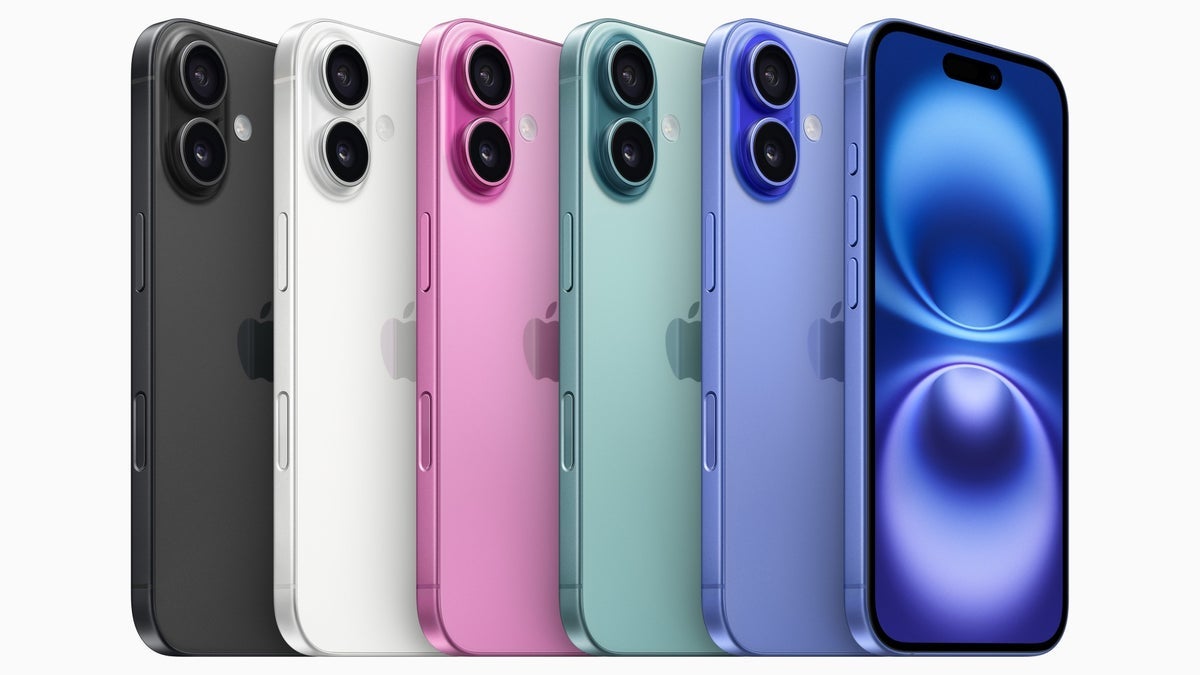Apple's iPhone 16 dominates the social media hype in China, just not in a good way
We may earn a commission if you make a purchase from the links on this page.

If Apple is relying solely on the iPhone 16 to get back on track in China… well, it might have to come with a Plan B. So far, Plan A is not going well.
As we reported some weeks ago, the iPhone dropped out of the top five smartphones in China for the first time in years.
In the second quarter of 2024, Apple dropped to sixth place, marking the first time in history that domestic manufacturers dominated the top five spots in the rankings. The decline in the iPhone's competitiveness in China is seen as a major factor behind Apple's efforts to launch a hit iPhone as soon as possible.
However, things went the other direction as Apple's new iPhone launch faced criticism in China on Tuesday for its lack of artificial intelligence features. To add on top of this, the Cupertino giant faces increasing competition from Huawei in the world’s largest smartphone market.
Apple unveiled its much-anticipated, AI-enhanced iPhone 16 on Monday, but the overall feeling is that upgrades are incremental.
The problem is that Apple has yet to secure an AI partner in China to support the iPhone 16. As this Reuters report reads, its AI software (humbly called Apple Intelligence) won’t be available in Chinese until next year. A major bummer. I can share that frustration since I'm based in Europe, and here, we won't get Apple Intelligence for the moment as well.
The iPhone 16 launch dominated Chinese social media discussions on Tuesday, just ahead of Huawei's announcement of a three-way foldable smartphone. On Weibo, China’s equivalent of X, three of the top 10 trending topics were about the iPhone 16, with AI features being a central focus of the conversation.
The hashtag "iPhone 16 Chinese version doesn't support AI yet" attracted 11.33 million views and over 1,500 comments on Weibo.
Users are frustrated by the lack of AI features in the iPhone 16 in China and are wondering what's the point of buying the handset. Also, they observe that the price should be far lower, if it doesn't offer Apple Intelligence. Great point, actually.
Speaking of price tags, the iPhone 16 and 16 Plus will be priced the same as the models they replace. Earlier this year, Apple aggressively cut prices in China as government restrictions on foreign-branded phones and growing domestic competition impacted its smartphone sales.
On Weibo, some users compared Apple's launch to Huawei’s upcoming phone, with the Chinese company looking to extend its lead over Apple in its home market.
Apple's shares dropped 1% in premarket trading on Tuesday, following the unveiling of its new iPhones, which feature hardware-level AI integration but minimal external design changes.
The iPhone 16 will introduce AI capabilities, branded as Apple Intelligence, aimed at improving Siri and enhancing the camera. These features will be available later (the revamped Siri – in 2025), though Apple did not specify when they will move beyond beta testing.
Huawei re-entered the high-end smartphone market last year with a device powered by a domestically produced chip, defying U.S. sanctions that had severed its access to the global chipset supply chain. The release of the Mate 60 Pro took analysts and US officials by surprise.
Huawei already offers two-way foldable phones in its lineup, and strong sales in China helped the company surpass Samsung Electronics this year to become the world's largest vendor of foldable smartphones.
The tri-folding Huawei monster phone is also getting quite the love in its homeland:
Interesting times ahead: will Apple manage to reclaim its top position in China, or is it beyond the point of no return already? Let me know in the comments below!
As we reported some weeks ago, the iPhone dropped out of the top five smartphones in China for the first time in years.
However, things went the other direction as Apple's new iPhone launch faced criticism in China on Tuesday for its lack of artificial intelligence features. To add on top of this, the Cupertino giant faces increasing competition from Huawei in the world’s largest smartphone market.
The problem is that Apple has yet to secure an AI partner in China to support the iPhone 16. As this Reuters report reads, its AI software (humbly called Apple Intelligence) won’t be available in Chinese until next year. A major bummer. I can share that frustration since I'm based in Europe, and here, we won't get Apple Intelligence for the moment as well.
The iPhone 16 launch dominated Chinese social media discussions on Tuesday, just ahead of Huawei's announcement of a three-way foldable smartphone. On Weibo, China’s equivalent of X, three of the top 10 trending topics were about the iPhone 16, with AI features being a central focus of the conversation.
Users are frustrated by the lack of AI features in the iPhone 16 in China and are wondering what's the point of buying the handset. Also, they observe that the price should be far lower, if it doesn't offer Apple Intelligence. Great point, actually.
Speaking of price tags, the iPhone 16 and 16 Plus will be priced the same as the models they replace. Earlier this year, Apple aggressively cut prices in China as government restrictions on foreign-branded phones and growing domestic competition impacted its smartphone sales.
On Weibo, some users compared Apple's launch to Huawei’s upcoming phone, with the Chinese company looking to extend its lead over Apple in its home market.
That's not the end of the story. Apple's iPhone 16 failed to impress investors, as its anticipated AI features remain in test mode, while Huawei's industry-first tri-fold phone intensified competition in the global smartphone market.
Apple's shares dropped 1% in premarket trading on Tuesday, following the unveiling of its new iPhones, which feature hardware-level AI integration but minimal external design changes.
The iPhone 16 will introduce AI capabilities, branded as Apple Intelligence, aimed at improving Siri and enhancing the camera. These features will be available later (the revamped Siri – in 2025), though Apple did not specify when they will move beyond beta testing.
With lots of words like "later this year" and "early next year", the core Apple message for iPhone 16 was: Next year will be better.
– Needham analyst Laura Martin, September, 2024
Huawei re-entered the high-end smartphone market last year with a device powered by a domestically produced chip, defying U.S. sanctions that had severed its access to the global chipset supply chain. The release of the Mate 60 Pro took analysts and US officials by surprise.
The tri-folding Huawei monster phone is also getting quite the love in its homeland:
Interesting times ahead: will Apple manage to reclaim its top position in China, or is it beyond the point of no return already? Let me know in the comments below!
Follow us on Google News













Things that are NOT allowed:
To help keep our community safe and free from spam, we apply temporary limits to newly created accounts: